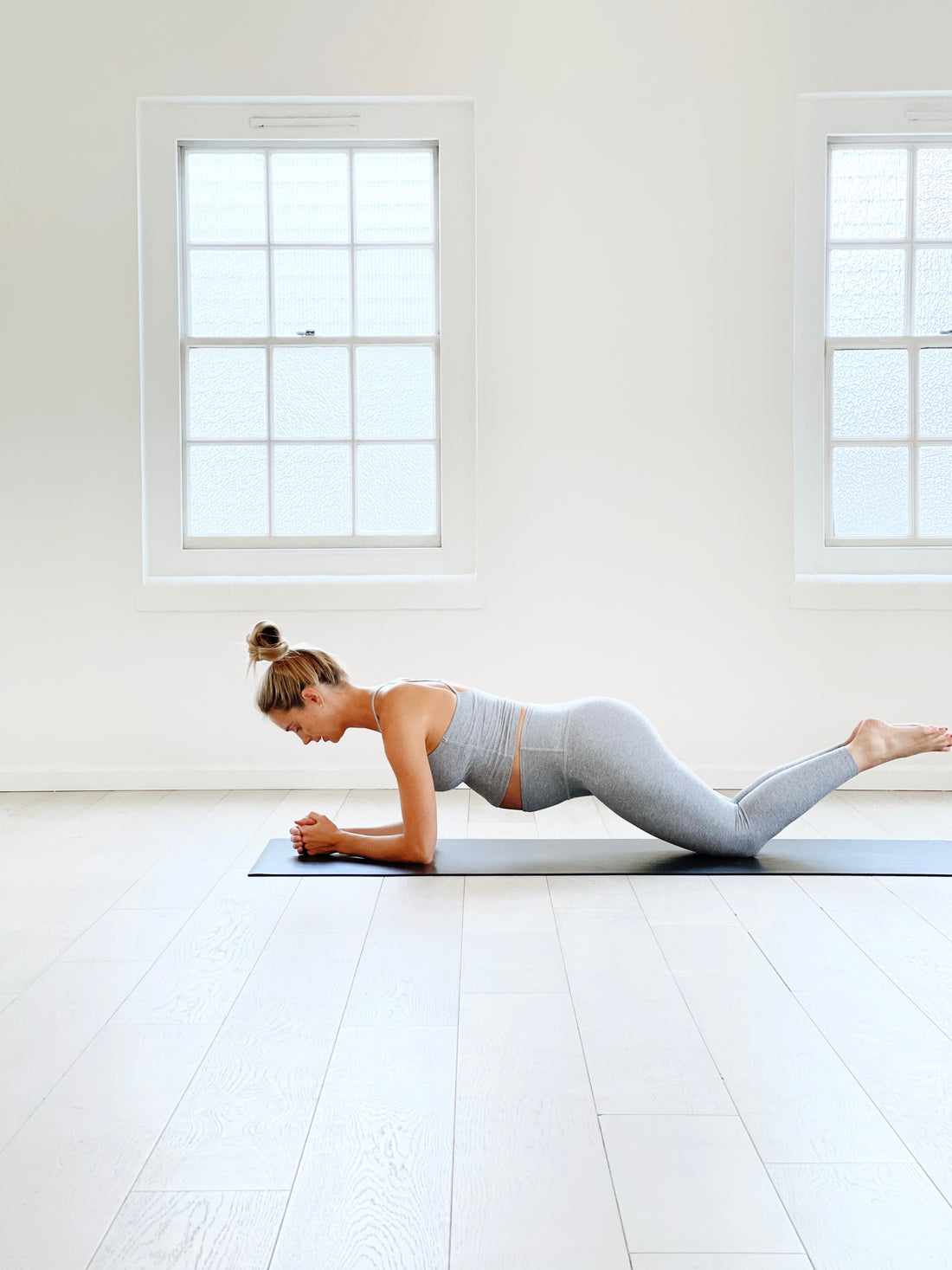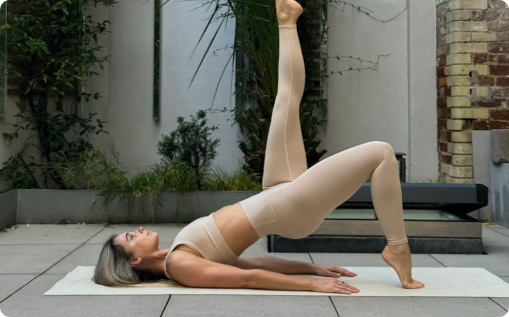For most Mums-to-be, you can (and should!) exercise throughout pregnancy. But your workouts should also evolve over time, helping you stay strong and prepare for labour, birth and motherhood, while also honouring your body’s changing needs. Some women may be able to continue with specific exercises longer than others, while some may need to modify movements earlier on in their pregnancy.
Listening to your body and how you are feeling is paramount in this unique period of your life, but below are some general guidelines to safe exercise in pregnancy.
Trimester One
These early weeks commonly bring fatigue and nausea associated with your body’s hormonal changes. This time is a massive shift for your body and mind and you’ll probably need to ease back on your usual levels of physical activity. This might mean decreasing your total workout time per week, or increasing your rest time between sessions to give yourself time to recover.
Most important adjustments in Trimester One:
1. Decrease total workout time and/or increase rest.
You may need to decrease your total workout time and/or increase your rest intervals so as not to exacerbate fatigue or nausea. This may not apply to everyone, and some may be able to continue with their regular workout time, but many will need to follow this guidance. Give yourself the time and grace you may need to rest and reboot your energy levels.
2. Focus on your core and pelvic floor.
There's never a better time to start focussing on your core and pelvic floor strength, honing in on these muscle groups with each and every exercise you do. Build your awareness of how they’re connected with specific exercises such as pelvic tilts, pelvic curls and glute bridges.
3. Be kind to yourself.
Your body is undergoing a lot of change in trimester one – your blood volume is increasing, your hormones are fluctuating, and your uterus is growing (just to name a few). Be patient and kind to yourself as you adjust.
Trimester Two
Your belly is starting to grow and your workouts will need to be modified to continue with safe exercise for you + bubs. This will include modifying crunching and twisting exercises, eliminating prone (belly down) moves, and reducing any high-impact movements.
Most important adjustments in Trimester Two:
1. Modify high-impact exercises.
Movements like squat jumps, jump lunges, skaters, mountain climbers and even running may need to be dialled back from here on out. You can modify these exercises by taking the low-impact alternative, or if it feels better in your body to fully eliminate them, definitely do.
2. Eliminate belly-down moves.
For any moves taken from a prone (belly down) position, it's time to stop these. However, for now, you may still be ok to continue with supine (belly up) exercises – e.g. bridges and toe taps – so long as you aren't getting any feelings of nausea, dizziness or light-headedness.
3. Modify core exercises.
Crunches, sit-ups, bicycles and any other crunchy, twisty movements may need to be modified now. As your belly grows and your muscles and ligaments stretch, managing your intra-abdominal pressure becomes more challenging. This can result in potential "doming" in the abdomen, which we are trying to avoid as much as possible.
4. Focus on your breath.
Connecting your breath to each movement will help you to manage intra-abdominal pressure, which is super important for pelvic floor health. Think about Exhaling for the Effort part of the movement, pulling your baby inward towards your body, then inhaling for the controlled release.
Trimester Three
You may be starting to feel a little heavier and more fatigued come the third trimester. Savour your energy by reducing the intensity, duration and/or frequency of your workouts. Stay active when you can and in a way that feels good in your body.
Most important adjustments in Trimester Three:
1. Pelvic floor strength and relaxation.
While you should incorporate pelvic floor work throughout your entire pregnancy, you want to put pelvic floor release work in focus in the third trimester. Your pelvic floor needs to relax to birth your baby and be strong for the postpartum period.
2. Hip stability.
You will notice a lot of the common pregnancy pains, such as lower back and pelvic girdle, may start to creep in around this time. It is important to continue with strengthening and stability work of your core, pelvic floor and hips to keep this pain at bay.
3. Modify overhead movements.
Due to the intra-abdominal pressure that overhead moves can cause, it’s time to take a break from these until after your baby is here.
4. Breathwork.
Focus on connecting your breath to the movement to reduce sympathetic response. This will also help train in correct breathing through your labour contractions.
Do you want more guidance when it comes to pregnancy-safe exercise? Check out our 4-Week Prenatal Pilates Plan that includes safe and effective Pilates workouts on a recommended schedule. This plan is perfect for all fitness levels, and designed with minimal equipment so that you can do each workout from anywhere. I filmed some of this course while I was pregnant myself, so you can trust that these moves have been tested and approved!
If following a plan isn't your vibe, we also have a Prenatal Pilates category of classes, that includes all pregnancy-safe workouts available on-demand.





